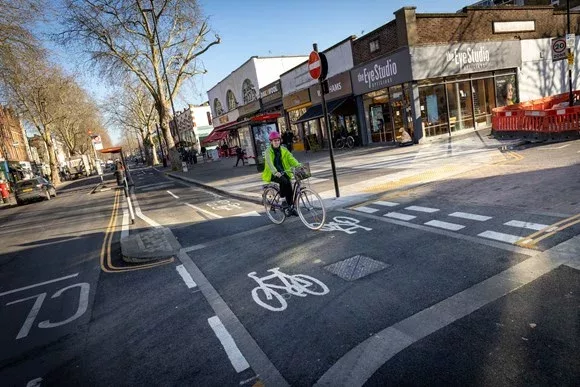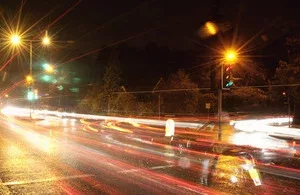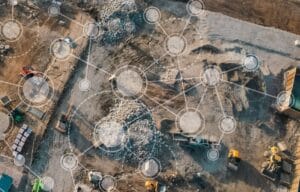The Department for Transport’s decision earlier this year to slash the budget for cycling and walking schemes in England by around 75 percent can be legally challenged, the High Court ruled yesterday.
The action was brought by active travel campaign group Transport Action Network (TAN), who wrote to the government in June seeking a judicial review into the cuts, which activists described at the time as a “backward move” that would make it “impossible” to meet Net Zero and cycling and walking targets, according to a Road.CC report.
Lawyers for TAN, who launched a crowdfunding campaign to challenge the cuts, argued that the ministers who made the decision bypassed legal processes and risk undermining commitments concerning equality, air pollution, and the climate emergency – despite only months earlier trumpeting the “significant” benefits of active travel, said the Road.CC report.
Last week, at the Hight Court, Mr Justice Jay granted permission for a full judicial review into the cuts, noting that this was “potentially an important case” concerning a legal provision that had not been looked at before.
While the Cycling and Walking Investment Strategy’s central target of over half of urban journeys being walked or cycled by 2030 forms a key part of the government’s climate and air quality plans, the DfT forecast even before March’s cuts that they would fail to meet this target.
Transport Secretary Mark Harper’s announcement in March that the active travel budget for England would be slashed – with the Walking and Cycling Alliance estimating that over two thirds of previously promised funding would be lost – was roundly condemned, with SNP MP Gavin Newlands pointing out that the cuts mean that less than £1 per head will be spent in England outside of London, compared to over £50 per head in Scotland.
In a pre-action letter sent to Harper in June, TAN also noted the disparity between active travel funding in England and the rest of Britain, while arguing that the DfT’s claim that more than £3 billion is being spent on active travel during this parliament includes budgets from other departments that may benefit active travel, but do not provide evidence of how.
Additionally, even if the £3 billion figure is met, TAN notes this is less than the £18 billion required to meet the government’s target for half of all urban journeys to be walked or cycled by 2030.
Following yesterday’s High Court ruling, TAN’s director Chris Todd said: “It’s fantastic to be making legal history. This could set a hugely helpful precedent for healthy travel.
“When they cut funding in March, ministers promised to find additional cash as soon as possible. Yet of the £36 billion saved from cutting HS2 this month, not a penny was dedicated to active travel. There wasn’t a single example of a walking or cycling scheme in the huge list of projects the Prime Minister was promising, said the Road.CC report.
“It’s obvious that ministers are no longer serious, whether about their commitments to cut congestion, improve travel choices, address climate change, or clean up our air. We’re disappointed that we had no choice but to take them to court. However, we’re delighted the judge agreed this important case deserves a full hearing.”
Leigh Day solicitor Rowan Smith, acting on behalf of TAN, added: “Transport Action Network believes that these cuts to national cycling and walking funding massively undermine the government’s plans to address climate change and air pollution.”
“It appears the government hasn’t followed its own statutory rules in this area, so TAN is delighted the Court today has agreed a full hearing to question whether the minister’s decision was lawful.”
“It was only after independent scrutiny from a National Audit Office investigation that double-counting in active travel funding was revealed,” Todd said.
“The court case should shed light on the DfT’s lack of join-up between funding, cycling and walking objectives, and targets to address climate change and air quality. This could be an uncomfortable ride for ministers.“
Speaking at April’s annual showcase event for the All Party Parliamentary Group for Cycling and Walking, MP Ruth Cadbury stressed the need for “consistent” cycling funding in the wake of the previous month’s cuts.
“Debate around active travel can be polarising,” she acknowledged. “In reality, I don’t think it’s controversial at all… the talk of 15-minute cities, that term may have become a bit pejorative but basically it means having the things you need within 15 minutes walk or cycle, including points of public transport.
“For most of us this is popular and it provides tangible benefits for communities — cleaner air, better high streets, easier access to amenities and safer roads — as well as free travel and healthier outcomes for those who walk or cycle.”

























